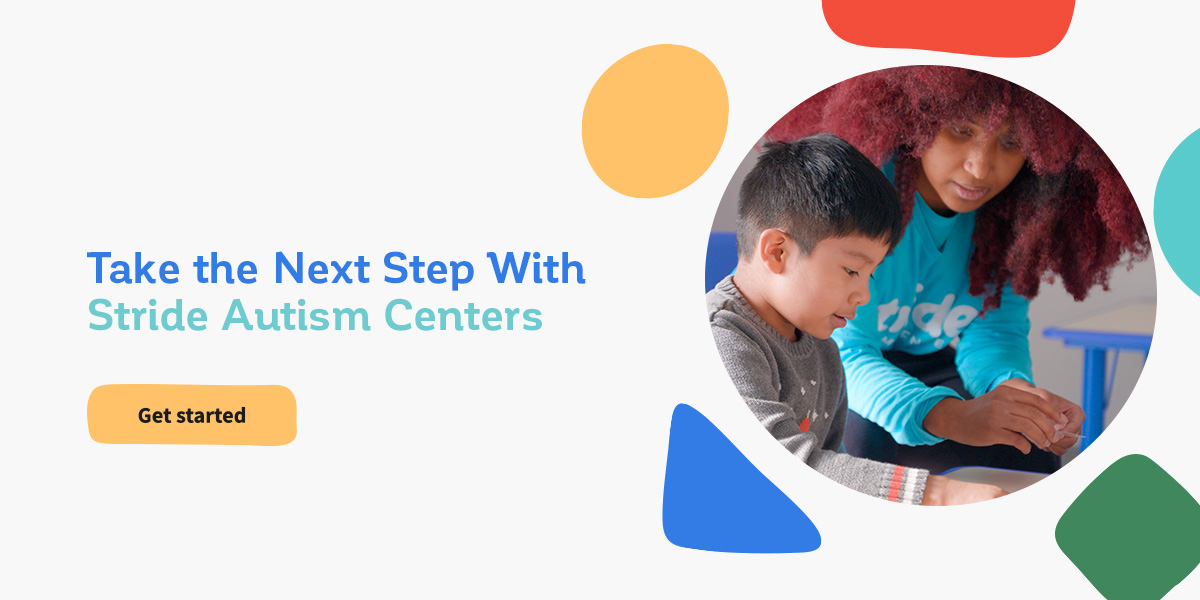Sleep difficulties are common in children with autism spectrum disorder (ASD) aged 1-3, ranging from 50% to 80% of cases. Stride Autism Centers can partner with your family to help understand your child’s specific needs and provide the necessary support.
Why Sleep Matters for Your Child’s Development
Sleep is fuel for growing bodies and brains. During deep sleep, the brain organizes new information, builds connections, boosts learning, and enhances problem-solving skills. Proper sleep can help kids manage their emotions and strengthen their immune system.
Common Causes of Sleep Problems in Toddlers With Autism
Sleep deprivation is often overlooked as a cause of a child’s performance or behavioral concerns, especially in children with autism. Many kids with autism struggle to fall or stay asleep, which can raise irritability, meltdowns, and attention problems, making learning harder.
The cause of a child’s sleep disturbances can vary depending on several factors, including:
- Bedtime or daytime habits
- Mental health conditions, such as anxiety or attention-deficit/hyperactivity disorder (ADHD)
- Biological causes, including sleep hormone imbalances
- Bedwetting and toilet training difficulties
- Night terrors and nightmares
- Restless sleep, such as body-rocking, head-rolling, and head-banging
- Social communication difficulties
How to Help a Toddler With Autism Sleep Through the Night
What your child does during the day can significantly affect their sleep. Here are a few tips to implement into your day-to-day schedule to encourage your toddler to sleep at night:
- Establish a consistent schedule: Sticking to a predictable bedtime routine can help your toddler know when to start settling for bed. For example, create a visual aid to walk your child through the same schedule every night, helping them understand what to expect next.
- Optimize the sleep environment: A stimulating environment can make it difficult for toddlers with autism to relax. Modifying their room can promote comfort, such as using blackout curtains to adjust light and sound or changing bedding to be soft and breathable.
- Encourage daytime activity: Regular physical exercise and access to natural light during the day can promote better sleep for toddlers with autism. However, avoid rigorous activities one to two hours before bedtime, as their adrenaline can keep them awake.
- Limit stimulating activities and foods: Restrict screen time from TVs, phones, or tablets at least an hour before bed, as blue light can interfere with sleep. It’s also essential to limit caffeine and sugary foods close to bedtime.
- Try a natural sleep aid: For a child with autism, a natural sleep aid, like melatonin, can be helpful to fall asleep faster and sleep longer. Be sure to consult your doctor before trying this method.
How ABA Therapy Can Help a Toddler With Autism Sleep
If nothing seems to help your toddler settle down for sleep, it may be time to consider behavioral interventions. Applied behavior analysis (ABA) is a therapeutic strategy that can identify the connection between your child with autism and sleep disturbances.
At Stride Autism Centers, we work with children and collaborate with parents to develop a personalized plan for sleep optimization. Specifically, we can help identify why falling and staying asleep is challenging for your child and establish positive reinforcement methods to encourage milestones.
When to Seek Professional Support
It may be time to seek professional support for a toddler with autism who is not sleeping if the issue persists for more than a few weeks. During this time, it can significantly impact your child’s behavior and development and cause some family stress.
Here are some signs it’s time for your child to have an autism and insomnia evaluation:
- Your child is experiencing more frequent and intense hyperactivity, aggression, or irritability during the day.
- Your toddler has difficulty relaxing around bedtime.
- Sleep deprivation has intensified self-stimulatory behaviors.
- Your child takes longer than 30-60 minutes to fall asleep or wakes frequently for over an hour at a time.
- Your toddler has not responded well to the recommended sleep routines.
Take the Next Step With Stride Autism Centers
Together, let’s craft a daytime plan that feeds into a good night’s rest for your child. Stride Autism Centers serves families in communities across Illinois, Iowa, Nebraska, and South Dakota. Contact our expert team today to get started.






